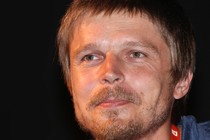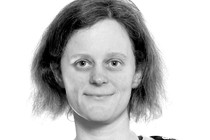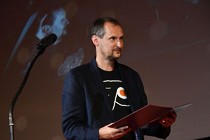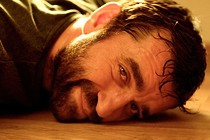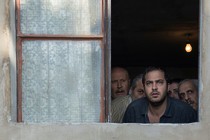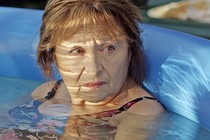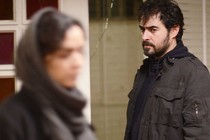Eva Nová: A portrait larger than its frame
- This powerful fiction feature debut by Slovakian documentarian Marko Škop has been unveiled in Toronto's Discovery section
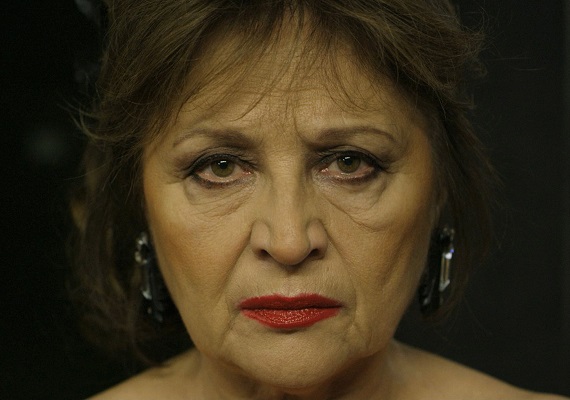
Eva Nová [+see also:
trailer
interview: Marko Škop
film profile], the fiction feature debut by Slovakian documentarian Marko Škop, which has just won the FIPRESCI Jury Prize in the Discovery section at the Toronto International Film Festival (see the news), opens with a scene of the eponymous protagonist leaving rehab. Again. The 62-year-old actress begins to contemplate life after her return to the mundaneness of reality, deciding to mend the broken maternal bond between her and her estranged, now adult, son, a tie corroded by years of neglect, resentment and anxiety. The reconciliation fails miserably, and her son ends up casting her aside. However, an unfortunate twist of fate whisks her back into his life.
With surgical precision, the director has made an intimate psychological drama, a portrait touching upon universal and cyclical matters. But Eva Nová is not an indictment of the abandonment of the responsibility of motherhood, and the film follows the character as she ruminates on the aspects of her turbulent personal life that resulted in her self-induced state of alcoholic limbo. Through her drinking, she had aimed to ease the burden, but what it actually produced were the sad by-products of child neglect, subconscious indoctrination and stigmatisation.
Škop, as Ivan Ostrochovský did, redefines the documentary experience and procedures, to much avail. The minimalistic director stages the majority of the scenes between four walls, mostly in Eva's flat or her son's house. The tension that is created as their two different worlds collide brings buried wrongdoings and sins to the surface. When the director does make the occasional foray into different spaces, it serves to enhance the figure of the protagonist by outlining new layers, sketching out a more complex and elaborate portrait on the intentionally limited canvas.
One of the defining formal traits of Eva Nová is its spatial economy. Škop scarcely vacates the protagonist's bubble of intimacy; she is literally front and centre of the film and the camera (courtesy of Ján Meliš). The director's impressive mise-en-scène is capable of staging the film's most dramatic scenes in tiny rooms or, in one particular case, in a children's inflatable garden pool. Similarly, the plot consists of a few closely related events. Škop, who also penned the script, uses these events to elegantly unfurl the well-paced personal history of the central character, making the portrait ever deeper by adding new perspectives – not in order to deride the subject under scrutiny, but rather to enable us to better comprehend her choices, actions and inner world.
Eva Nová (literally translated as Eve New) is a Jane Doe who does not only represent the countless mothers who have taken steps in ill-advised directions; she is an overarching figure reflecting personal collapse and an attempt to claw back the last traces of one's dignity, self-control and will to arise from one's knees back to one's feet. The burden of channelling all of this onto the screen rests upon the shoulders of the dame of Slovakian cinema and theatre, Emília Vášáryová, who, as the leading lady, clearly achieves this goal in a solid performance. She was even willing to make the extra step to visually “degrade” herself for the role.
The film has one other important element. The psychological portrait grows beyond its frame, into that staple of Eastern European cinema: a bleak social drama addressing current socio-economic perils in the region. It follows in the same vein as films exploring the issue of (poor) East versus (rich) West, albeit less radically than Ulrich Seidl's memorable Import/Export [+see also:
trailer
film profile], but no less poignantly and urgently, through the character of Eva Nová's son.
Eva Nová was produced by Marko Škop and Ján Meliš for Slovakian outlet Artileria, and was co-produced by Alice Tabery of Czech company Sirius Film and Radio and Television Slovakia, with support from the Ministry of Culture of the Slovak Republic, the Slovak Audiovisual Fund, the MEDIA Programme and the Czech State Cinematography Fund. The film's sales agent is Loco Films (Laurent Danielou, Florencia Gil).
Did you enjoy reading this article? Please subscribe to our newsletter to receive more stories like this directly in your inbox.














